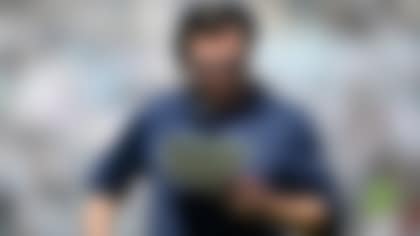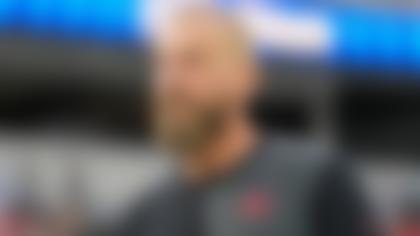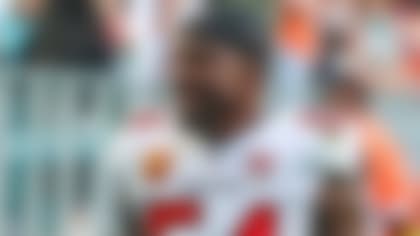WASHINGTON -- Harry Kalas, the voice of NFL Films and longtime Philadelphia Phillies broadcaster, died Monday. He was 73.
Kalas, who punctuated innumerable home runs with his "Outta here!" call, died after being found passed out in the broadcast booth before a game against the Washington Nationals.
"We lost our voice today," Phillies president David Montgomery said, his voice cracking. "He has loved our game and made just a tremendous contribution to our sport and certainly to our organization."
Kalas was discovered by the Phillies' director of broadcasting at about 12:30 p.m. and taken to a local hospital, Montgomery said.
Kalas had surgery earlier this year for an undisclosed ailment that the team characterized as minor. He looked somewhat drawn last week as the Phillies opened the season at home.
To a whole generation of football fans, Kalas was a signature figure.
Joining NFL Films as a narrator in 1975, he did the voiceover for "Inside the NFL" from 1977 through 2008.
Kalas predecessor John Facenda "was the 'Voice of God' and Harry Kalas was the 'Voice of the People,'" NFL Films president Steve Sabol said in a written statement.
"In many ways, Harry is the narrator of our memories. His voice lives on not only on film, but inside the heads of everyone who has watched and listened to NFL Films."
Kalas joined the Phillies in 1971. Before that, he was a member of the Houston Astros' broadcast team from 1965-70. In 2002, he received the Baseball Hall of Fame's Ford C. Frick Award for his contributions to the game.
"Players come and go, but 'Outta here!' -- that's forever," said Scott Franzke, a Phillies radio broadcaster.
Kalas lent his sonorous voice to everything from puppies to soup. He was the voice for Chunky Soup commercials and Animal Planet's annual tongue-in-cheek Super Bowl competitor, the Puppy Bowl.
Kalas joined the Phillies' radio and TV broadcast team the year the club moved into its former home, Veterans Stadium, replacing fan favorite Bill Campbell.
He wasn't immediately embraced by Phillies fans, despite being paired with Richie Ashburn, a Hall of Famer as a player and longtime announcer. But Kalas evolved into a beloved sports figure in Philadelphia. He and Ashburn grew into a popular team and shared the booth until Ashburn's death in 1997.
"Major League Baseball has lost one of the great voices of our generation," MLB commissioner Bud Selig said in a statement. "Baseball announcers have a special bond with their audience, and Harry represented the best of baseball not only to the fans of the Phillies, but to fans everywhere."
Kalas is survived by his wife and three sons, including one -- Todd -- who is a broadcaster for the Tampa Bay Rays. Funeral arrangements were pending.
His family issued a statement saying they were "overwhelmed by the outpouring of love and affection from all of Harry's fans and friends cross America. Especially the Phillies fans whom he loved as much as the game of baseball itself."
Kalas fell in love with baseball at a young age, when his father took him to Comiskey Park to see the Chicago White Sox play the Washington Senators. It was a rainy night and Kalas sat with his dad behind the Washington dugout.
"Because of the rains, the field was covered," he told The Associated Press. "There was no batting practice, so the players really didn't have anything to do. Mickey Vernon popped out of the dugout, saw this wide-eyed kid -- me -- picked me up, took me in the dugout, gave me a baseball, introduced me to his teammates and thus began my love of baseball and the Washington Senators."
He maintained that enthusiasm for the game throughout his career.
The son of a Methodist minister, the Naperville, Ill., native graduated from the University of Iowa in 1959 with a degree in speech, radio and television. He was drafted into the Army soon after he graduated.
In 1961, he became sports director at Hawaii radio station KGU and he also broadcast games for the Hawaii Islanders of the Pacific Coast League and the University of Hawaii.
Copyright 2009 by The Associated Press



